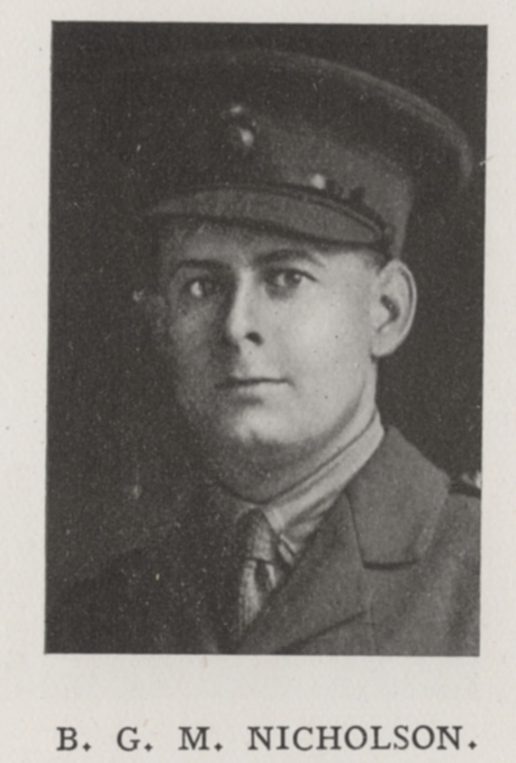Nicholson, BGM
(1892 - 1918)

Key Facts
DATE OF BIRTH:
26th September 1892
YEARS ATTENDED THE COLLEGE:
1907 - 1909
HOME ADDRESS WHEN AT THE COLLEGE:
3 High View Park Gardens, West Norwood
REGIMENT
13th Battalion, Northumberland Fusiliers
FINAL RANK:
Lieutenant
DATE OF DEATH:
29th October 1918
AGE AT DEATH:
26
WHERE HE DIED (or was wounded)
Lincoln
LOCATION OF GRAVE OR MEMORIAL:
Hanwell (City of Westminster) Cemetery. R. 3845.
Lieutenant Bernard George Maurice Nicholson
Born on September 26th 1892, Bernard was the youngest of three surviving children of railway worker George Nicholson and his wife, Anna. He joined Dulwich in September 1907, two years after his elder brother, Geoffrey, had left, and went on to be at the College for the next two and a half years, leaving at Christmas 1909. During his final autumn he was in the Modern Lower Fourth, and also a regular player for the 2nd XV. After finishing school, he went on to work as a clerk at a private mental institution.
On September 2nd 1914, around a month after war had been declared, Bernard enlisted in the Artists Rifles, along with his friend and fellow OA, Claude Kidd. After a year’s service, much of it spent training, he was given a commission in the Northumberland Fusiliers, otherwise known as the ‘Fighting Fifth’, the following October. He went on to serve at Armentieres, Buire & Meaulte, before a serious injury sustained at Fricourt during the first day of the Somme resulted in him being invalided back to England. That November he was posted to the 4th Training Reserve Battalion, based in Staffordshire, before rejoining his regiment in France early the following year. After spending the early part of 1917 on the front line, Bernard was promoted to Lieutenant that July. For the rest of the year he was in and out of the trenches on a regular basis, seeing his most prolonged period of action at Poelcappelle that October, during the Third Battle of Ypres. In January 1918 he returned to England, and was attached to the Hampshire Cyclist Battalion, working on the coastal defences in Lincolnshire. Not long afterwards he contracted septic pneumonia, and after an extended battle with the illness ultimately passed away, on October 29th 1918, in a hospital in Lincoln.